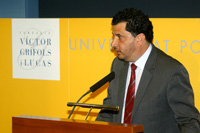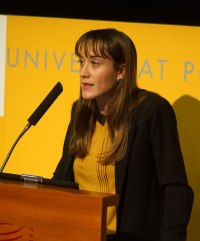2009
David Rodríguez-Arias, Professor of Philosophy at Universidad de Salamanca
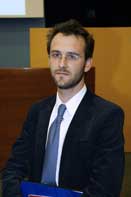
This study is an adaptation of the author's doctoral thesis, completed under joint supervision by the Universities of Salamanca and Paris-Descartes. The central aim of the thesis was to analyze the ethical issues regarding the determination of human death and the extraction of organs for transplant.
It incorporates empirical research conducted in Spain, France and the United States, and funded by France's Agency for Biomedicine, and aims to analyze and compare knowledge, opinions and attitudes of over five hundred health professionals in these three countries regarding brain death and organ transplants.
The study consists of four sections:
- Setting out the historical relationship between brain death and organ transplants, and explaining the current legal-medical model for determining human death and proceeding to extract the organs.
- Discussing the conceptual and epistemological problems which underlie the determination of human death and its normative implications.
- Debating organ extraction as a genuinely normative problem.
- Exploring the knowledge and opinions of the professionals involved in the process of organ donation and transplantation with regard to the concept of death and the extraction of organs.
Faculty of Philosophy at the University of Salamanca
http://www.usal.es/webusal/node/29
2010
Josefina Goberna Tricas, Professor at Escola Universitària d'Infermeria of Universitat de Barcelona
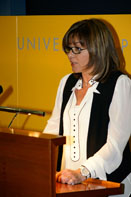
In this thesis various methodologies have been applied, starting with historiographical procedures, analysis and interpretation of texts which have enabled full understanding of historical documents and how these have been passed on throughout the generations. Later in the study there is a description and analysis of various clinical practice models.
Finally the principles and forms of bioethical analysis have been applied to configure a framework of knowledge where actions and decisions may be taken that respond to the needs detected in these studies.
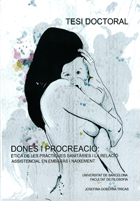
2011
2012
2013
Anna Marta Falcó, Lecturer at the College of Nursing at the University of Barcelona
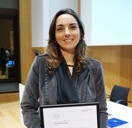
This research project focuses on the conflicts that arise for the nursing staff working in Intensive Care Units (ICU); a clinical setting that is particularly sensitive to ethical dilemmas. The project validates a theoretical model for analysis, it develops a tool for exploring the conflicts that arise in IC and it examines the relationship between such events and the social, demographic and, professional variables in the clinical setting, in order to design strategies for preventing and dealing with such conflicts.

